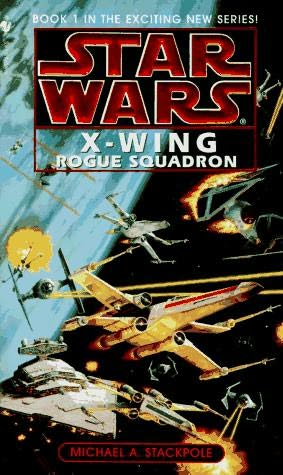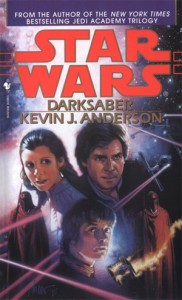 This something for the gamers out there. I saw this news crop up this week and I felt compelled to say something about it. When I started college, I was exposed to the network G4 for the first time. I really actually enjoyed it an awful lot back then. For point of reference, this was 2005. The dorms had cable in every room and it was awesome, occasionally at the start of the year, we’d have a week of HBO for free in the hopes of convincing students to order it and spend more money.
This something for the gamers out there. I saw this news crop up this week and I felt compelled to say something about it. When I started college, I was exposed to the network G4 for the first time. I really actually enjoyed it an awful lot back then. For point of reference, this was 2005. The dorms had cable in every room and it was awesome, occasionally at the start of the year, we’d have a week of HBO for free in the hopes of convincing students to order it and spend more money.
In any event, I would watch G4 probably far too much at the time. For those of you that don’t know, the network has been built around the concept of being a network for video gamers of all stripes, all console and pc players could tune in and get their impressions of games and sometimes insider info before it really got out much.
Additionally, they had a lot of original content outside of their two news shows, X-Play and Attack of the Show (AOTS). Some of these shows were based around just cheat codes, easter eggs and unlockables in games (Cheat) or one block of programming that was just showing the trailers for games that were coming out soon or old trailers for games already released but that were awesome trailers you’d want to watch again anyway.
Eventually they even started broadcasting what has become a small phenomenon, Ninja Warrior, a show that is a translation of a Japanese obstacle course show called Sasuke. This isn’t a show like the Most Extreme Elimination Challenge, which is largely pretty darned hokey. Ninja Warrior is an actually really difficult looking challenge based on athleticism.
As time has worn on, though, a lot of that content that I enjoyed was pared down. First the trailer programming was cut, then Cheat. But that was okay because they introduced a program called ‘Movies that Don’t Suck,” which was great because they’d show honestly awesome movies. The ones that come to mind are Tron and a myriad of Bruce Lee flicks.
Well, by the time I was a senior, they’d started trimming a lot of that from their content as well, but that was okay because they still had some pretty respectable people on the air. I never really liked AOTS but it did have some level of journalism to it, not a lot but it had something. Mostly that was the work of Olivia Munn, someone that I particularly don’t care for, but that’s me. Aside from her, they had Geoff Keighley, who was a pretty good personality for their correspondence outside of the regular hosts and had his own news show for a while before it was cancelled in 2009. Finally, they had an industry veteran named Adam Sessler.
Adam knew what he was about when it came to games. Not only had he been involved in gaming journalism for a very long time, he’d been one of the co-hosts for X-Play since 1998, back when the show was on TechTV. It’s fair to say that he was a recognized and respected journalistic entity in the gaming world. He also served as the Editor-In-Chief of games content at G4.
That having been said, those were some of the things that I appreciated about the network. In the past three years or so, though, most of the programming on G4 has shifted to being geek culture and great movies to dribble like reruns of Cops, Cheaters and Campus PD. That’s been a tremendous let down.
Additionally, the network began to lose the personalities that made it watchable. Olivia Munn left first, and she ended up on the Daily Show. Geoff Keighley left next. And now, Adam Sessler is done with them.
If you want to hear some well thought out diatribes and rants about the gaming industry, then you will want to track down some of Sessler’s work in a segment called “Sessler’s Soapbox.” It’s a good way to understand the gaming industry and what at least one insider thinks needs to happen to continue good sales and evolution in the media. Because that’s about the only place you’re going to find it anymore. G4 sure won’t have it.
I guess if you’ve read this much of the post, then you’re wondering why I actually went through the trouble of putting it up. I really hate to see this happen. G4 used to be a network that fit the mold of being a channel that was really by gamers for gamers. It was a kind of validation for those of us who spent too much time indoors when we were young and took video games too seriously. It was a place where adults talked seriously about the kinds of things that gamer geeks actually cared about and it also asked us to think about what we were exposing ourselves to. I think the list of people that have been cut loose is really somewhat tragic to that culture. It’s understandable to say that the internet has created the same kind of environment for it, but I feel like that isn’t the same kind of legitimacy that an actual television network has. The G4 I enjoyed in college is pretty much dead now. And that is unfortunate.
If you want to read more about Sessler and his departure from G4, you can head over to Kotaku.
 If you listen to podcast here at Tosche Station, (and if you do, great, if you don’t, why not?) you’ve heard that in honor of the coming latest addition to the fantastic X-Wing series, Mercy Kill, we’re presenting you a retrospective of the series. It will provide a great opportunity for those of us who haven’t read the books in a very long time to refamiliarize ourselves with it. That is actually my own situation—I love these books but somehow I haven’t read them for what must have been a solid decade.
If you listen to podcast here at Tosche Station, (and if you do, great, if you don’t, why not?) you’ve heard that in honor of the coming latest addition to the fantastic X-Wing series, Mercy Kill, we’re presenting you a retrospective of the series. It will provide a great opportunity for those of us who haven’t read the books in a very long time to refamiliarize ourselves with it. That is actually my own situation—I love these books but somehow I haven’t read them for what must have been a solid decade.


